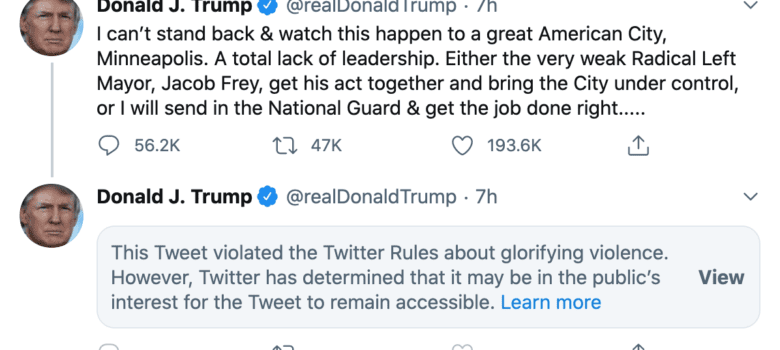U.S. President Donald Trump yesterday signed an executive order targeting Internet platforms after Twitter fact-checked one of his tweets on mail-in voting (the company followed up with a warning on another tweet earlier today involving glorifying violence). The order cannot simply reverse current U.S. law, but it encourages U.S. regulators to rethink how the Internet safe harbour provisions that limit liability for Internet platforms for third party content are implemented.
While the U.S. is obviously free to assess its statutory approach, one issue that received little attention is that the U.S. has effectively locked itself into the safe harbour system through its trade agreement with Canada and Mexico. The inclusion of safe harbour provisions in the agreement were viewed by some as an attempt to force Canada to adopt similar rules, yet the more likely reason for lobbying on the issue was to ensure that the U.S. itself was bound by the rules. Indeed, there were last minute efforts to remove the provision from the final deal, but those were ultimately rejected.
The end result is that Article 19.17 of the USMCA features a provision that largely mirrors current U.S. law:
1. The Parties recognize the importance of the promotion of interactive computer services, including for small and medium-sized enterprises, as vital to the growth of digital trade.
2. To that end, other than as provided in paragraph 4, no Party shall adopt or maintain measures that treat a supplier or user of an interactive computer service as an information content provider in determining liability for harms related to information stored, processed, transmitted, distributed, or made available by the service, except to the extent the supplier or user has, in whole or in part, created, or developed the information.
3. No Party shall…
Why is the Canadian Government So Indifferent to Privacy?
Over the past several weeks, there have been several important privacy developments in Can…
















